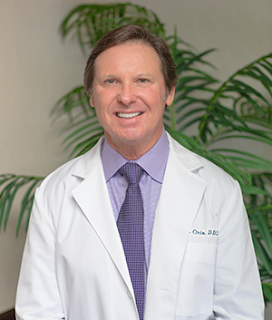Exchanging passionate kisses with big-screen star Jennifer Lawrence might sound like a dream come true. But according to Liam Hemsworth, her Hunger Games co-star, it could also be a nightmare… because J.Law’s breath wasn’t always fresh. “Anytime I had to kiss Jennifer was pretty uncomfortable,” Hemsworth said on The Tonight Show.
Lawrence said the problem resulted from her inadvertently consuming tuna or garlic before the lip-locking scenes; fortunately, the two stars were able to share a laugh about it later. But for many people, bad breath is no joke. It can lead to embarrassment and social difficulties — and it occasionally signifies a more serious problem. So what causes bad breath, and what can you do about it?
In 9 out of 10 cases, bad breath originates in the mouth. (In rare situations, it results from a medical issue in another part of the body, such as liver disease or a lung infection.) The foul odors associated with bad breath can be temporarily masked with mouthwash or breath mints — but in order to really control it, we need to find out exactly what’s causing the problem, and address its source.
As Lawrence and Hemsworth found out, some foods and beverages can indeed cause a malodorous mouth. Onions, garlic, alcohol and coffee are deservedly blamed for this. Tobacco products are also big contributors to bad breath — which is one more reason to quit. But fasting isn’t the answer either: stop eating for long enough and another set of foul-smelling substances will be released. Your best bet is to stay well hydrated and snack on crisp, fresh foods like celery, apples or parsley.
And speaking of hydration (or the lack of it): Mouth dryness and reduced salivary flow during the nighttime hours is what causes “morning breath.” Certain health issues and some medications can also cause “dry mouth,” or xerostomia. Drinking plenty of water can encourage the production of healthy saliva — but if that’s not enough, tell us about it: We may recommend switching medications (if possible), chewing xylitol gum or using a saliva substitute.
Finally, maintaining excellent oral hygiene is a great way to avoid bad breath. The goal of oral hygiene is to control the harmful bacteria that live in your mouth. These microorganisms can cause gum disease, tooth decay, and bad breath — so keeping them in check is good for your overall oral health. Remember to brush twice and floss once daily, stay away from sugary foods and beverages, and visit the dental office regularly for checkups and professional cleanings.
So did J.Law apologize for the malodorous makeout session? Not exactly. “[For] Bradley Cooper, Christian Bale, yeah, I’ll brush my teeth,” she laughed.
Hemsworth jokingly agreed: “If I was kissing Christian Bale I probably would have brushed my teeth too. With you, it’s like, ‘Eh. Whatever.’”
If you would like more information about bad breath and oral hygiene, please contact us or schedule an appointment for a consultation. You can learn more by reading the Dear Doctor magazine article “Bad Breath: More than Just Embarrassing.”
from civinsmiles.com Blog http://ift.tt/2gUGqlX
via IFTTT

 The VELscope is a non-invasive oral cancer screening device. It looks a lot like a standard household flashlight, even when sitting in its charging cradle. However, instead of emitting regular full-spectrum light, it emits a safe, visible blue light. This excites your oral tissue and causes it to fluoresce. Then the device filters out reflected light. This allows Dr. Civin to see tissue fluorescence. To him, it appears green. And that tells him that there could potentially be a problem.
The VELscope is a non-invasive oral cancer screening device. It looks a lot like a standard household flashlight, even when sitting in its charging cradle. However, instead of emitting regular full-spectrum light, it emits a safe, visible blue light. This excites your oral tissue and causes it to fluoresce. Then the device filters out reflected light. This allows Dr. Civin to see tissue fluorescence. To him, it appears green. And that tells him that there could potentially be a problem..jpg)


